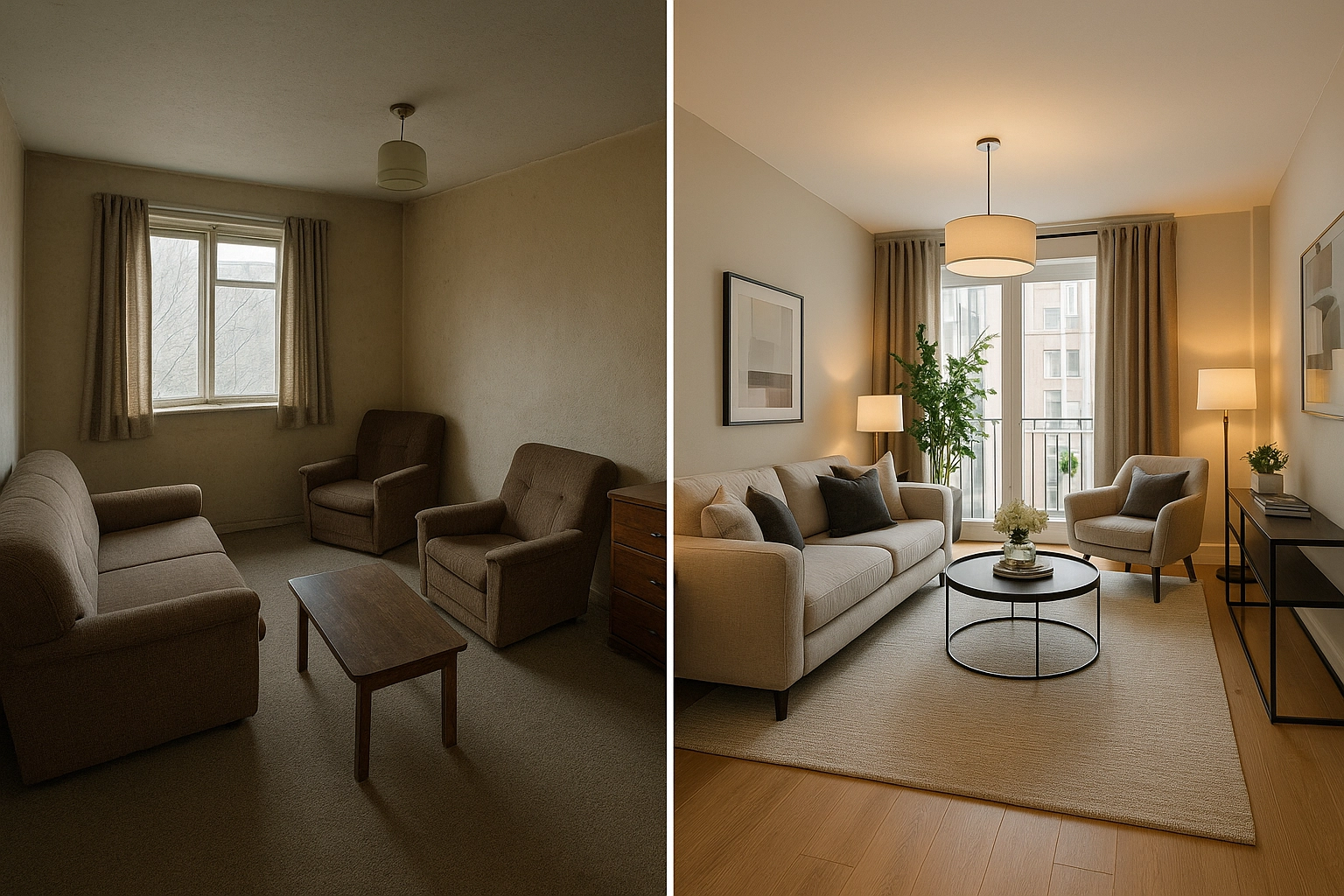
Are Long-Term Tenants Dead? Why Savvy Investors Are Switching to Short-Stay Strategy
The traditional letting game is broken. While landlords cling to outdated rental models, savvy property investors are quietly making the switch to short-stay strategies—and the numbers don't lie. In 2025, the UK's serviced accommodation market hit £9.2 billion, while traditional buy-to-let landlords face mounting pressures from regulatory changes, declining yields, and an increasingly challenging tenant landscape.
But here's what most landlords don't realise: the transition from long-term tenants to short-stay guests isn't just about higher profits—it's about future-proofing your property investment in a rapidly evolving market.
The Death Spiral of Traditional Letting
Traditional long-term letting is facing unprecedented challenges that make it increasingly unsustainable for serious property investors. The removal of mortgage interest relief has slashed profitability, while the 3% stamp duty surcharge on second homes has made expansion costly. Energy efficiency regulations, safety compliance requirements, and the looming Section 21 abolition have created a perfect storm of increased costs and reduced control.

The Tenant Problem
Long-term tenants bring inherent risks that short-stay guests simply don't. Problem tenants can take months to evict, costing thousands in legal fees and lost rent. Even good tenants naturally cause more wear and tear over extended periods, and when they leave, you're often facing significant refurbishment costs and void periods that can stretch for months.
Market Stagnation
Traditional rental yields have stagnated while property prices soared. In prime locations, rental yields of 3-4% barely cover financing costs, let alone provide meaningful returns on investment. Meanwhile, these same properties can generate 15-20% yields when converted to short-stay accommodation.
The Short-Stay Revolution
Short-stay strategies aren't just a trend—they're a fundamental shift in how smart property investors approach rental income. The UK market has shown remarkable resilience, with demand consistently outstripping supply in key locations.
Income Multiplication
Properties converted from traditional letting to short-stay accommodation typically see income increases of 200-400%. A London flat renting for £2,500 per month can easily generate £6,000-£8,000 monthly through strategic short-stay management. Even in secondary cities, the multiplier effect is substantial.
Flexible Pricing Power
Unlike fixed-rent agreements, short-stay accommodation allows dynamic pricing based on demand, events, and seasonality. During peak periods, daily rates can increase by 300-500%, maximising income from high-demand windows that traditional letting completely misses.

Guest Quality Control
Short-stay guests are typically higher-income individuals who treat properties with respect. The review system creates accountability that long-term tenants don't have, while the shorter stays mean issues are identified and resolved quickly rather than festering over months or years.
The Transition Challenge
The biggest barrier preventing landlords from making the switch isn't opportunity—it's execution. Converting a traditional rental property to successful short-stay accommodation requires expertise in pricing optimisation, guest communication, professional photography, listing management, and compliance with local regulations.
Most landlords underestimate the complexity involved. Poor listings, incorrect pricing, inadequate guest screening, and operational mistakes can quickly turn a promising investment into a costly headache. This is where professional Airbnb management becomes crucial.
Technology Integration
Modern short-stay success depends on sophisticated technology integration. Dynamic pricing algorithms, automated messaging systems, professional booking management, and review monitoring require platforms and expertise that most individual landlords lack.

Operational Excellence
The difference between mediocre and exceptional short-stay performance lies in operational details. Professional cleaning protocols, guest experience optimisation, emergency response procedures, and proactive maintenance scheduling separate successful operators from amateurs.
Market Timing Advantage
2025 presents a unique opportunity for landlords to transition from traditional letting to short-stay strategies. Post-pandemic travel patterns have stabilised, with business travel returning and leisure demand remaining strong. The gap between traditional rental yields and short-stay income has never been wider.
Reduced Competition
While the short-stay market is growing, many markets still have relatively low competition compared to traditional rentals. Early movers in emerging locations can establish dominant positions before the market becomes saturated.
Professional Management Evolution
The emergence of professional Airbnb management services has eliminated the operational barriers that previously made short-stay accommodation impractical for most landlords. Full-service management allows property owners to capture higher yields without the day-to-day operational burden.
Why Professional Management Changes Everything
The transformation from traditional letting to short-stay success isn't something most landlords can navigate alone. Professional Airbnb management services handle every aspect of the operation, from initial setup and optimisation through ongoing guest management and property maintenance.

Setup and Optimisation
Professional services create compelling listings with professional photography, write persuasive descriptions, implement dynamic pricing strategies, and ensure full regulatory compliance. This foundation work determines whether a property succeeds or struggles in the competitive short-stay market.
Ongoing Operations
Guest communication, booking management, cleaning coordination, maintenance scheduling, and review management require constant attention. Professional management teams handle these responsibilities, allowing landlords to enjoy increased income without increased workload.
Performance Maximisation
Experienced operators continuously optimise pricing, improve guest experiences, and adapt strategies based on market conditions. This ongoing refinement is what separates high-performing properties from average ones.
The Financial Reality
When landlords actually run the numbers, the decision becomes clear. Traditional letting might offer stability, but short-stay strategies offer prosperity. A typical property transition involves:
Initial Investment: Professional setup, furnishing, and compliance (£5,000-£15,000)
Management Fees: 15-25% of gross income
Net Income Increase: 150-300% above traditional rental income
Even after accounting for management fees and higher operational costs, net income typically doubles or triples compared to traditional letting.

Future-Proofing Your Investment
The property investment landscape is evolving rapidly. Regulatory pressures on traditional letting will intensify, while the short-stay market continues expanding. Landlords who transition early position themselves advantageously for long-term success.
The question isn't whether to make the switch—it's whether to do it now while the opportunity is optimal, or wait until market saturation makes the transition more challenging and less profitable.
For property investors serious about maximising returns and future-proofing their portfolios, the traditional letting model is indeed dying. The smart money has already started moving toward professionally managed short-stay strategies that deliver superior returns with reduced long-term risks.
The transition requires expertise, but the rewards justify the investment. In a market where traditional yields struggle to keep pace with inflation, short-stay accommodation offers the income growth that serious property investors demand.
